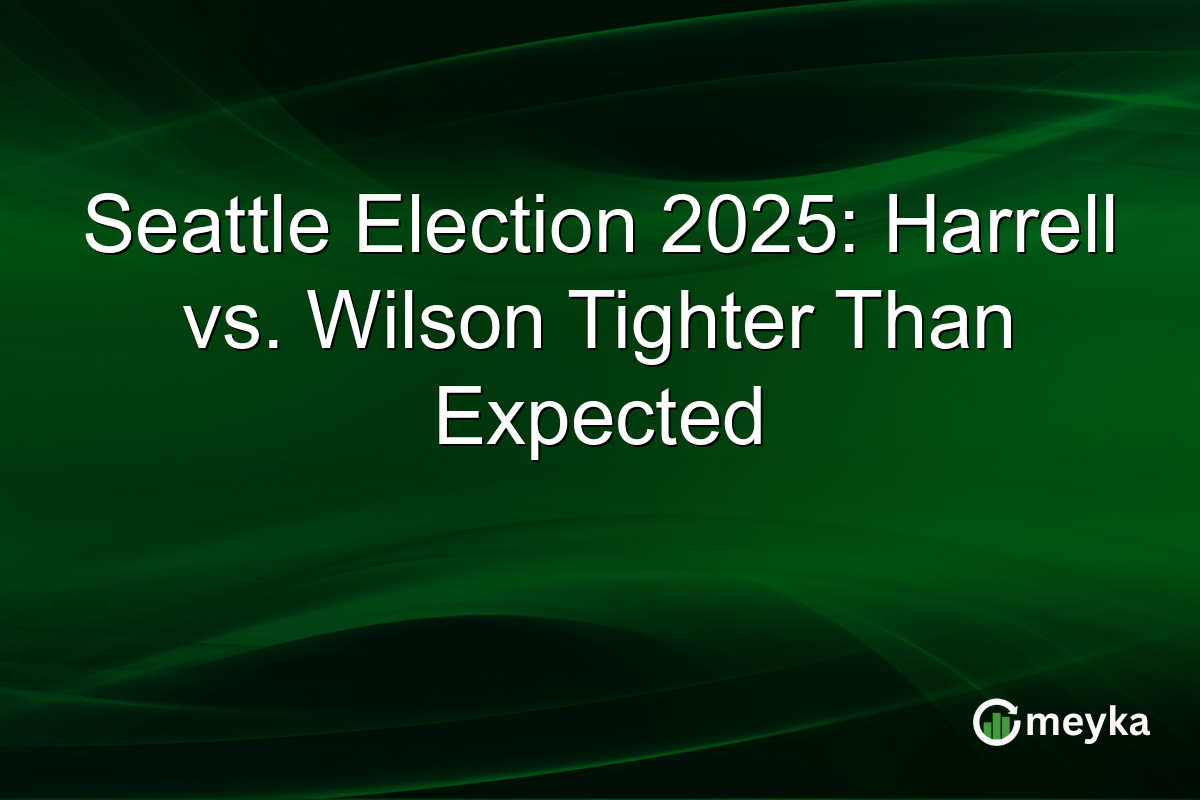Seattle Election 2025: Harrell vs. Wilson Tighter Than Expected
The Seattle election results of 2025 are capturing attention as incumbent Mayor Bruce Harrell faces a surprisingly tight contest against progressive challenger Katie Wilson. On Election Night, Harrell held a modest lead, but the race remains uncertain with many ballots left to count. Historically, Seattle’s late-arriving ballots often trend progressive, potentially swinging momentum toward Wilson. This election is closely watched due to its implications for Seattle’s governance and policy directions, affecting sectors like real estate and business.
Continue Reading on Meyka
This article is available in full on our main platform. Get access to complete analysis, stock insights, and more.
Read Full Article →





